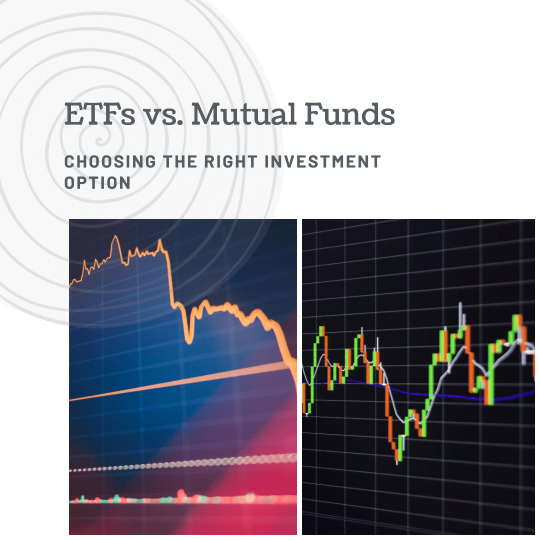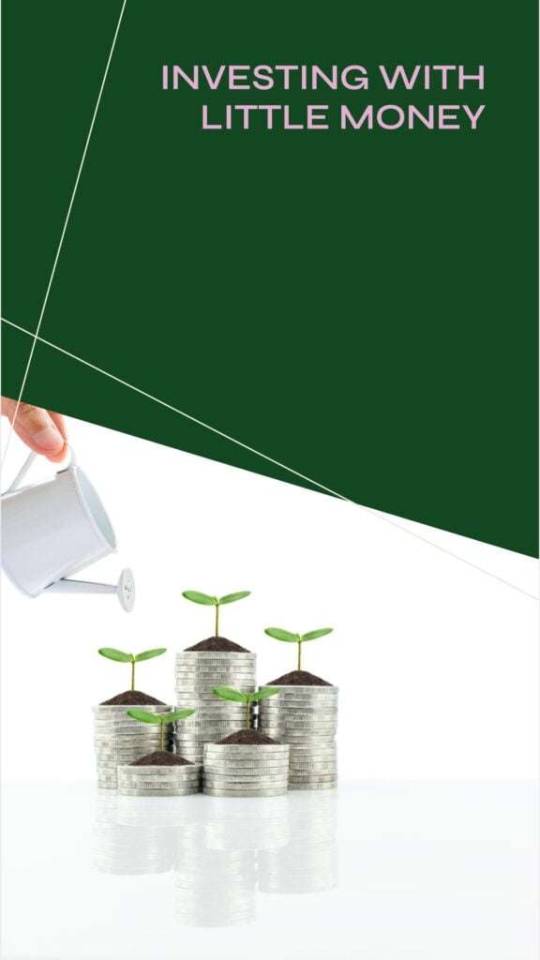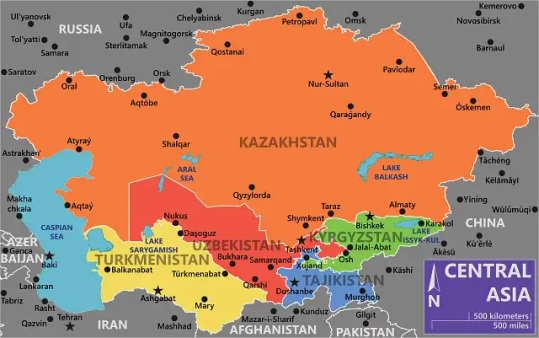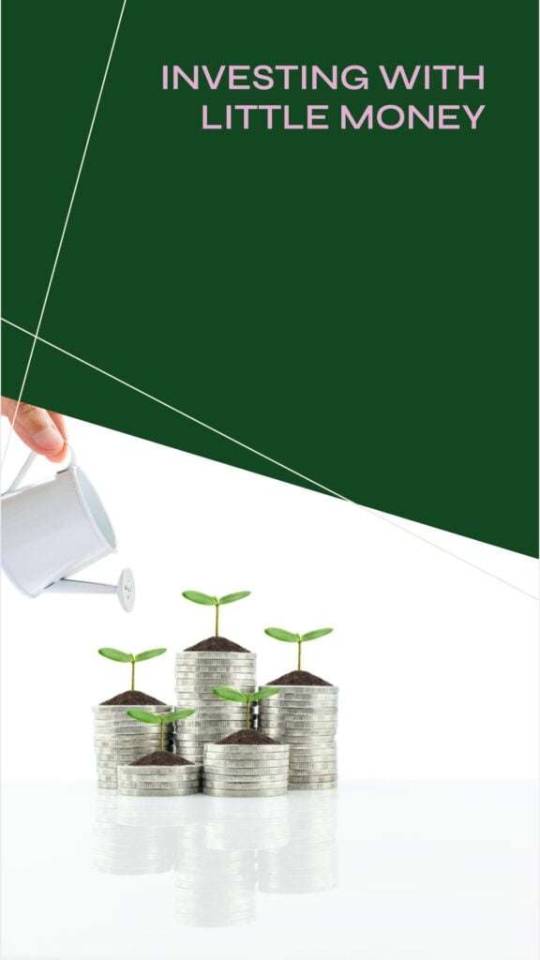#SupplyChains
Text
Red Sea Attack Threatens Global Trade: Maersk Halts Shipping Amid Geopolitical Tensions
#containership #geopoliticaltensions #globaltrade #Houthirebels #internationalshipping #Iran #Maersk #maritimeoperations #RedSeaattack #SaudiArabia #shippingcompanies #supplychains #tensions #Yemencivilwar
#Business#containership#geopoliticaltensions#globaltrade#Houthirebels#internationalshipping#Iran#Maersk#maritimeoperations#RedSeaattack#SaudiArabia#shippingcompanies#supplychains#tensions#Yemencivilwar
0 notes
Text
Smartly manage your Supply Chain Business with ERPNext Solution
Supply chain management is a tough process for any business that works with physical goods. It include the entire flow of goods, from raw materials to finished products, to the end customer. An ERP system can be a valuable tool for managing Supply chain processes.
Supply Chain ERP Software gives complete control over all the major processes of supply chain business. Apart from that this ERP software tracks and manages activities such as track inventory, retail management, managing customers, and managing business profitability.
A supply chain ERP system can automate many tasks involved in SCM, such as inventory management, order processing, and shipping. it can help to improve over all efficiency and reduce costs. Also , an ERP system can provide real-time visibility into the supply chain, which can help businesses to identify and address problems early on.
Our supply chain ERP software that offers a number of features to help businesses improve their SCM processes. Some of the key features of Solufy ERP Provides:
Sales Order Management
Monitor each phase of the order process such as generating product to final delivery of that product. This Supply Chain ERP Software is able to review that order to understand quantities, total costs, payment methods and shipping speeds.
Supplier Management
Maintaining stuff such as purchase approvals, price lists of products, paying cycles, etc. are hectic in the Retail Business. That can be centralised by ERP Supply Chain Software.In which you can manage and evaluate suppliers to ensure they’re delivering stock items and products to the right locations.
Increased efficiency
You’ll have your IT needs outsourced to a team of IT experts, and during times where you need additional project support, your managed IT provider supplies the extra staff.
Material Management
Material management module in the Supply Chain ERP System plays a major role in the industry. It includes planning, organising, staffing, and controlling all the processes and operations.
Sales & Distribution
The sales and distribution module in Supply Chain ERP System manage customers, manage sales as well as track shipment of orders. This module plays a very important role to grow the business.
Logistics Module
Logistics is the heart of Supply Chain business. Logistics Module in the Supply Chain ERP System useful for tracking goods and products at real time.
For More Details visit Here on :- https://www.solufyerp.com/industries/supplychain-erp-management-software/
For Enquire mail on :- [email protected]
0 notes
Text
Other South East Asian (SEA) Countries recently have been benefiting immensely from having a healthy Economic Trade with China, except for the Philippines because of the Tensions brought about by its Territorial Disputes with China in the South China Sea (SCS).
This was initially released as an Article last March 27, 2024 at https://therhk111philippinedefenseupdates.blogspot.com/2024/03/sea-countries-greatly-benefiting-economic-trade-china-except-philippines.html
#southeastasia#southchinamorningpost#scmp#china#philippines#griffithasiainstitute#australia#construction#nonfinancialinvestments#southchinasea#scs#myanmar#finance#supplychains#infrastructure#renewableenergy#mineralprocessing#electricvehicle#ev#railwayproject#touristarrivals#byd#indonesia#catl#vietnam#fruitexports#cambodia#banana#thailand#malaysia
0 notes
Text
President Biden Hosts Americas Summit in LA: Tackling Supply Chains & Migration
#AmericasSummit #losangeles #migration #presidentbiden #supplychains
0 notes
Text
The Best Investment Options During Global Conflicts and Cold Wars


1. Why is it important to invest during global conflicts and cold wars?
2. How can alliances and partnerships help secure your investments?
3. What are the best investment options during global conflicts and cold wars?
4. How can defense stocks be a stable investment during global conflicts?
5. The importance of investing for the long term during cold wars
Case Study
Q: What is the impact of international peace on modern security and trade?
Q: How does international peace affect supply chains?
Q: What role does international peace play in the overall strategy of nations?
Q: Is international peace influenced by geopolitical tensions?
Q: How does international peace impact the resilience of economies?
Q: What is the role of international organizations in promoting international peace?
Q: How does international peace contribute to the security of cyberspace?
Q: Can the outbreak of conflicts impact international trade?
Q: What is the relationship between international peace and the deployment of new technologies?
Q: How does international peace impact policymaking?
Global conflicts and cold wars can create economic and geopolitical uncertainties that can significantly impact investments. However, it is important to consider investing during these periods as it can offer various advantages and opportunities for financial growth and stability.
1. Why is it important to invest during global conflicts and cold wars?
1.1 Safeguarding your investments
During times of global conflicts and cold wars, there is a higher risk of economic and political upheaval. By investing in secure assets, you can better safeguard your investments and minimize potential losses.
1.2 Building resilience in your portfolio
Investing during global conflicts and cold wars allows you to build resilience in your portfolio. Diversifying your investments across different sectors and asset classes can help mitigate risks and protect your wealth.
1.3 Strengthening your economy amidst crisis
Investments during global conflicts and cold wars can strengthen your economy by providing stability and growth. Your investments contribute to the overall Gross Domestic Product (GDP) and support economic development despite the challenging circumstances.


2. How can alliances and partnerships help secure your investments?
2.1 Investing in sectors with strong alliances
Choosing investment options in sectors that have strong alliances and partnerships can help secure your investments. Companies that collaborate internationally and have a strong network of allies are more likely to weather geopolitical uncertainties.
2.2 Leveraging the power of international cooperation
International cooperation is crucial during times of global conflicts and cold wars. By investing in industries that heavily rely on export and benefit from international cooperation, you can capitalize on the stability and growth that these alliances provide.
2.3 The role of the private sector in safeguarding investments
The private sector plays a vital role in safeguarding investments during global conflicts and cold wars. By investing in companies that prioritize research and development, intellectual property protection, and have the capacity to withstand economic shocks, you can secure your assets.

3. What are the best investment options during global conflicts and cold wars?
3.1 Investing in precious metals like Gold and Silver
Precious metals like Gold and Silver are considered safe-haven assets during times of geopolitical tensions. These metals have a long history of retaining their value and can act as a hedge against inflation and currency fluctuations.
3.2 Real estate as a secure investment during geopolitical tensions
Real estate investments are often viewed as secure during global conflicts and cold wars. Investing in properties can provide both financial stability and rental income, making it an attractive option for long-term investors.
3.3 Healthcare stocks as a defensive investment
Healthcare stocks can be a defensive investment during times of global conflicts and cold wars. Regardless of the geopolitical climate, healthcare remains an essential industry. Investing in companies in this sector can provide stability and potential growth.


top 10 startup mistakes
4. How can defense stocks be a stable investment during global conflicts?
4.1 The long-term prospects of defense stocks
Defense stocks can offer stability and growth potential during global conflicts and cold wars. Governments tend to prioritize defense spending to ensure national security, making defense companies a stable investment option.
4.2 Capitalizing on international peace and cooperation
During periods of international peace and cooperation, defense stocks can experience growth. As tensions ease and countries focus on rebuilding relationships, defense companies can benefit from increased defense budgets and cooperation.
4.3 Boosting your portfolio with investments in the defense sector
Investing in the defense sector can provide diversification and stability to your portfolio. Defense companies often have long-term contracts and government support, making them a reliable investment during global conflicts and cold wars.

5. The importance of investing for the long term during cold wars
5.1 Understanding the impact of global challenges on investments
Investing for the long term during cold wars requires a deep understanding of the impact of global challenges on investments. It is crucial to analyze the geopolitical climate, economic trends, and potential risks to develop a resilient investment strategy.
5.2 Complementing your investment strategy with long-term goals
Investing for the long term allows you to align your investment strategy with long-term goals. By focusing on stable assets and sectors that thrive during cold wars, you can capitalize on potential growth opportunities while managing risks.
5.3 Exploring investment opportunities in sectors that thrive during cold wars
Some sectors tend to thrive during cold wars, such as technology, healthcare, and defense. These sectors often benefit from increased government spending and advancements in technologies. Exploring investment opportunities in these sectors can lead to long-term financial growth.

How to Achieve Real Estate Success With No Money
Case Study
1: Warren Buffett and the Art of Long-Term Value Investing
Warren Buffett, often referred to as the "Oracle of Omaha," is one of the most renowned investors in the world. His investment philosophy is deeply rooted in the principles of long-term value investing, which has allowed him to navigate through numerous global conflicts and economic crises.
Background:
- Warren Buffett's investment journey began in the 1950s, during the Cold War era, and he faced various geopolitical uncertainties over the years.
- He is the chairman and CEO of Berkshire Hathaway, a multinational conglomerate holding company with investments in various industries.
Key Strategies:
- Long-Term Perspective: Buffett is known for his unwavering commitment to long-term investing. He famously said, "Our favorite holding period is forever." This approach has helped him weather market volatility during global conflicts.
- Diversification: Buffett has built a diversified portfolio of companies in various sectors, reducing the risk associated with concentrated investments.
- Value Investing: He seeks undervalued stocks and businesses with strong fundamentals, even during turbulent times. This strategy helped him capitalize on opportunities when others were fearful.
Success Story: During the 2008 financial crisis, one of the most significant global economic downturns in recent history, Warren Buffett made some shrewd investments. He injected $5 billion into Goldman Sachs, which was struggling at the time, in exchange for preferred stock. This move not only supported a major financial institution but also yielded substantial returns as the market recovered.
Buffett's ability to stay calm during tumultuous times, combined with his disciplined approach to value investing, serves as a remarkable case study for investors seeking to navigate global conflicts and cold wars successfully.
2: George Soros and the Power of Adaptive Strategies
George Soros, a prominent hedge fund manager and philanthropist, is renowned for his ability to adapt his investment strategies to changing global circumstances.
Background:
- Soros founded the Quantum Fund in 1973 and actively managed it through various global conflicts and financial crises.
Key Strategies:
- Adaptive Investing: Soros is known for his theory of "reflexivity" in financial markets, where he believes that investor sentiment and market conditions are interconnected. He adapts his strategies based on evolving situations.
- Global Macro Investing: Soros takes a top-down approach to investing, focusing on macroeconomic factors and political developments.
- Risk Management: He emphasizes the importance of risk management and setting stop-loss orders to limit potential losses.
Success Story: Soros is famous for his shorting of the British pound in 1992, a trade known as "Black Wednesday." He bet against the pound's stability in the European Exchange Rate Mechanism, capitalizing on the UK's economic struggles. His successful trade led to substantial profits and is still studied by investors and economists today.
Soros' case study highlights the significance of adaptability, global awareness, and calculated risk-taking during times of global conflicts and economic uncertainty.
Case Study 3: Ray Dalio and the Principles of All-Weather Portfolios
Ray Dalio, the founder of Bridgewater Associates, one of the world's largest hedge funds, is a proponent of creating "all-weather" investment portfolios that can withstand various economic and geopolitical conditions.
Background:
- Dalio's investment career spans decades, during which he encountered numerous global conflicts and economic crises.
Key Strategies:
- Diversification: Dalio emphasizes the importance of diversifying across asset classes to reduce risk. He advocates for a balanced portfolio that includes stocks, bonds, and alternative investments.
- Risk Parity: He pioneered the concept of risk parity, which allocates investments based on their risk rather than traditional market capitalization weightings.
- Scenario Analysis: Dalio and his team conduct extensive scenario analysis to prepare for various economic and geopolitical scenarios.
Success Story: One of the key takeaways from Dalio's approach is the performance of Bridgewater's "All Weather" fund during the 2008 financial crisis. While many investors suffered substantial losses, this fund remained stable due to its diversified and risk-balanced nature.
Dalio's case study underscores the importance of building resilient portfolios that can navigate global conflicts and economic downturns while achieving consistent returns.







Q: What is the impact of international peace on modern security and trade?
A: International peace has a significant impact on modern security and trade. When nations are at peace with each other, it creates a resilient environment that safeguards economic and national security. It promotes stability, allowing for the growth of prosperity and the smooth functioning of investment and trade.
Q: How does international peace affect supply chains?
A: International peace is essential for the smooth operation of supply chains. It reduces the risk of disruption caused by conflicts or potential adversaries. When countries are at peace, supply chains can function efficiently, ensuring the timely delivery of goods and facilitating economic growth.
Q: What role does international peace play in the overall strategy of nations?
A: International peace is a vital component of the overall strategy of nations. It helps create a favorable environment for economic growth and prosperity. Countries that prioritize peace and security are more likely to attract investment, establish successful trade partnerships, and maintain stability in various sectors.
Q: Is international peace influenced by geopolitical tensions?
A: Yes, international peace can be influenced by heightened geopolitical tensions. When there are ongoing disputes or conflicts between nations, it poses a threat to peace and security. Effective diplomacy and peaceful resolutions are necessary to mitigate the risks of escalation and move towards a peaceful coexistence.
Q: How does international peace impact the resilience of economies?
A: International peace enhances the resilience of economies. By avoiding conflicts, countries can focus on building strong economic foundations, diversifying their industries, and creating opportunities for growth.
Read the full article
#casestudies#coldwars#defensestocks#economicresilience#geopolitics#GeorgeSoros#globalconflicts#gold#healthcarestocks#internationalpeace#Investing#policymaking#preciousmetals#RayDalio#realestate#secureinvestments#silver#supplychains#technologydeployment#WarrenBuffett
0 notes
Text
Remarks by President Biden After Central Asia Meeting

Official Transcript.
THE PRESIDENT: It’s an honor to be here with — with you, our first presidential summit — all the presidents around this table and the Secretary of State.
I think this is a historic moment. We’re building on years of close cooperation between Central Asia and the United States — a cooperation that is grounded in our shared commitment to sovereignty, independence, and territorial integrity. These principles matter more than ever, in my view. And today, we’re taking our cooperation to new heights.
First, we’re strengthening our counterterrorism cooperation, including increased U.S. security funding to — to Central Asia.
Second, we’re strengthening regional economic connectivity. For example, we’re establishing a new business platform to complement our diplomatic engagement and better connect our private sectors for development purposes.
And we are — we are also discussing the potential for a new critical minerals dialogue to strengthen our energy security and supply chains for years to come.
And third, we’re launching a new initiative on disability rights.
And I want to thank you all for your fruitful conversation today, which has already taken place. And I look forward to working with all of you to do even more in the future. I am genuinely looking forward to following up on our — on this meeting, because we are stronger and I genuinely believe the world is safer when we stand together — our five nations.
So, thank you very, very much for making the effort. And I look forward to seeing you soon, possibly in one of your countries. Thank you.
Sources: THX News & The White House.
Read the full article
#CentralAsiacooperation#Counterterrorismpartnership#Criticalmineralsdialogue#Disabilityrightsinitiative#EnergySecurity#InternationalCollaboration#Presidentialsummit#Privatesectordevelopment#Regionaleconomicconnectivity#Supplychains
0 notes
Text
News from Nanaimo, Vancouver Island, BC, Canada, 20 July
Hullo, a new ferry service, will begin operating daily sailings between Downtown Nanaimo and Vancouver with up to seven round trips planned.
Fares for the ferry service start at $39.99 for a one-way trip, with discounts available for certain groups and pre-booking of round trips.
The two custom-built ships, spuhéls and sthuqi’, arrived in Nanaimo after completing certification and will be open for public tours on July 20th.
2. The BC Prosecution Service was unable to pursue charges against Craig Truckle in relation to a shooting at a homeless encampment along Terminal Ave in March this year owing to insufficient evidence and doubts about self-defense.
Inconsistencies in Smith's group's account of events and their lack of cooperation with police raised questions about their credibility.
The incident sparked public safety rallies in Nanaimo, highlighting concerns about repeat violent offenders and general safety in the area.
3. Vanessa Gove of Chilliwack pleaded guilty to driving without due care and attention in a fatal single-vehicle crash that claimed her husband's life on Hwy. 19.
The crash occurred on September 24, 2021, when Gove's vehicle left the road, rolled, and landed upside down.
Gove's husband, a 35-year-old male passenger, was pronounced dead at the scene, while Gove herself was flown to the hospital for treatment.
4. Illicit fentanyl continues to be the driving force behind the toxic drug crisis, causing deaths across various communities and demographics in British Columbia.
Working-aged men constitute a significant majority of the victims, with 70% of all victims falling between the ages of 30 and 59, and 77% being men.
The province's pilot project to decriminalize certain drugs is facing skepticism, with concerns raised about its effectiveness in achieving the desired outcome of reducing drug-related fatalities.
5. Prime Minister Justin Trudeau has expressed his concern about the ongoing labor dispute at British Columbia (B.C.) ports and the need to maintain stability in national supply chains.
The strike, which began on July 1 and lasted for 13 days, caused significant disruptions to operations at over 30 B.C. port terminals.
6. The BC Ferries vessel, the Coastal Celebration, is suspended due to repairs in dry dock, resulting in eight fewer sailings per day between Vancouver and the provincial capital, Victoria, on the Tsawwassen to Swartz Bay route.
The vessel has been experiencing issues with an ineffective blade seal, causing hydraulic oil leakage and the need for containment measures.
BC Ferries is unsure if the leak is related to recent maintenance work but is offering accommodations and refunds for affected customers.
7. BC Ferries' is also experiencing tight labour conditions. Its reliance on casual and seasonal positions, with employees expected to be on call 24/7, contributes to the difficulty in finding workers and establishing a reliable service.
#NewFerryService#NanaimoToVancouver#FastFerry#LaunchDate#Fares#CustomBuiltShips#PublicTours#TerminalAveShooting#ProsecutionService#InsufficientEvidence#SelfDefense#FatalCrash#GuiltyPlea#IllicitFentanyl#ToxicDrugCrisis#RecordDeaths#LaborDispute#BcPorts#SupplyChains#BCFerries#VesselSuspended#Repairs#TightLaborConditions#CasualPositions#SeasonalPositions#ReliableService
0 notes
Text

Unlocking the Future: The Promise of Quantum Computing
Are you ready to witness the dawn of a new era in Computing?
Quantum Computing is here and holds the key to solving complex problems that were once considered impossible to crack.
The Power of Quantum Mechanics
Quantum computing harnesses the principles of quantum mechanics, where qubits can exist in multiple states simultaneously. It enables us to tackle complex problems with remarkable speed and precision.
Solving Complex Problems, Unleashing Innovations
Imagine optimizing supply chains, designing more efficient drugs, simulating complex molecular interactions, and revolutionizing cryptography. Quantum Computing has the potential to revolutionize industries and drive breakthrough innovations.
Shaping the Future, Together
At Tecvolo Labs, we are at the forefront of quantum computing research and development. Our team is committed to driving innovation, pushing boundaries, and shaping a future where quantum computing transforms the way we live and work.
Embrace the Quantum Revolution
Join us in embracing the promise of quantum computing. Stay tuned for exciting updates and opportunities to be part of this quantum revolution. Together, let's unlock new frontiers and pave the way for a world where complex problems are solved with astonishing ease
#tecvolo#tecvololabs#quantumcomputing#futuretech#quantumrevolution#operationalreinvention#enterprisegrowth#innovation#businesssuccess#digitaltransformation#computing#cryptography#development#research#supplychains
0 notes
Text
#GLWSS#shipping#cargologistics#cargo#FCL#HospitalityLogistics#LCL#supplychains#supplychaimsolutions#supplychainlogistics#supplychainmanagement
0 notes
Text
#inventorycounts#finishedgoods#effectiveinventorymanagement#supplychains#rawmaterials#typesofinventorymanagementsystems#stocklevels#safetystock#fulfillorders#warehousemanagementsystem#excessinventory#supplychainmanagement#inventorymanagementtechniques#inventorymanagementsoftware#smallbusinesses#enterpriseresourceplanningerpsystem#tracksinventory#customerdemand#realtime#finishedproducts
0 notes
Text
Stock Market Plunges Amid COVID-19 Concerns: Tech Stocks Hit, Healthcare Rises
#10yearUSTreasurynote #alphabet #amazon #Apple #bonds #consumerspending #COVID19pandemic #DowJonesIndustrialAverage #energystocks #facebook #fiscalstimulusmeasures #globaleconomy #globaltrade #goldprices #healthcarestocks #Microsoft #NasdaqCompositeIndex #oilprices #reduceddemand #SP500 #safehavens #stockmarketdecline #supplychains #techstocks #USeconomy #volatility
#Business#10yearUSTreasurynote#alphabet#amazon#Apple#bonds#consumerspending#COVID19pandemic#DowJonesIndustrialAverage#energystocks#facebook#fiscalstimulusmeasures#globaleconomy#globaltrade#goldprices#healthcarestocks#Microsoft#NasdaqCompositeIndex#oilprices#reduceddemand#SP500#safehavens#stockmarketdecline#supplychains#techstocks#USeconomy#volatility
0 notes
Text

Agriculture Made Easy: Optimize Operations with Solufy ERP Software
Grow your agricultural business with #ERPNext: Monitor, analyze and optimize your crop cycles, track illnesses and fertilizers, and gain valuable insights to enhance your farming operations. With agricultural ERP, you can easy to keep track of your inventory, ensuring you have the right resources at the right time.
#AgricultureERP#SmartFarming#Farming#SupplyChains#AgriTech#FarmManagement#BusinessSolutions#SolufyERP#ERPNext#ERPSoftware
0 notes
Text
President Biden Hosts Americas Summit in LA: Tackling Supply Chains & Migration
#AmericasSummit #losangeles #migration #presidentbiden #supplychains
0 notes
Text
The Best Investment Options During Global Conflicts and Cold Wars
1. Why is it important to invest during global conflicts and cold wars?
2. How can alliances and partnerships help secure your investments?
3. What are the best investment options during global conflicts and cold wars?
4. How can defense stocks be a stable investment during global conflicts?
5. The importance of investing for the long term during cold wars
Case Study
Q: What is the impact of international peace on modern security and trade?
Q: How does international peace affect supply chains?
Q: What role does international peace play in the overall strategy of nations?
Q: Is international peace influenced by geopolitical tensions?
Q: How does international peace impact the resilience of economies?
Q: What is the role of international organizations in promoting international peace?
Q: How does international peace contribute to the security of cyberspace?
Q: Can the outbreak of conflicts impact international trade?
Q: What is the relationship between international peace and the deployment of new technologies?
Q: How does international peace impact policymaking?
Global conflicts and cold wars can create economic and geopolitical uncertainties that can significantly impact investments. However, it is important to consider investing during these periods as it can offer various advantages and opportunities for financial growth and stability.
1. Why is it important to invest during global conflicts and cold wars?
1.1 Safeguarding your investments
During times of global conflicts and cold wars, there is a higher risk of economic and political upheaval. By investing in secure assets, you can better safeguard your investments and minimize potential losses.
1.2 Building resilience in your portfolio
Investing during global conflicts and cold wars allows you to build resilience in your portfolio. Diversifying your investments across different sectors and asset classes can help mitigate risks and protect your wealth.
1.3 Strengthening your economy amidst crisis
Investments during global conflicts and cold wars can strengthen your economy by providing stability and growth. Your investments contribute to the overall Gross Domestic Product (GDP) and support economic development despite the challenging circumstances.
2. How can alliances and partnerships help secure your investments?
2.1 Investing in sectors with strong alliances
Choosing investment options in sectors that have strong alliances and partnerships can help secure your investments. Companies that collaborate internationally and have a strong network of allies are more likely to weather geopolitical uncertainties.
2.2 Leveraging the power of international cooperation
International cooperation is crucial during times of global conflicts and cold wars. By investing in industries that heavily rely on export and benefit from international cooperation, you can capitalize on the stability and growth that these alliances provide.
2.3 The role of the private sector in safeguarding investments
The private sector plays a vital role in safeguarding investments during global conflicts and cold wars. By investing in companies that prioritize research and development, intellectual property protection, and have the capacity to withstand economic shocks, you can secure your assets.

3. What are the best investment options during global conflicts and cold wars?
3.1 Investing in precious metals like Gold and Silver
Precious metals like Gold and Silver are considered safe-haven assets during times of geopolitical tensions. These metals have a long history of retaining their value and can act as a hedge against inflation and currency fluctuations.
3.2 Real estate as a secure investment during geopolitical tensions
Real estate investments are often viewed as secure during global conflicts and cold wars. Investing in properties can provide both financial stability and rental income, making it an attractive option for long-term investors.
3.3 Healthcare stocks as a defensive investment
Healthcare stocks can be a defensive investment during times of global conflicts and cold wars. Regardless of the geopolitical climate, healthcare remains an essential industry. Investing in companies in this sector can provide stability and potential growth.


top 10 startup mistakes
4. How can defense stocks be a stable investment during global conflicts?
4.1 The long-term prospects of defense stocks
Defense stocks can offer stability and growth potential during global conflicts and cold wars. Governments tend to prioritize defense spending to ensure national security, making defense companies a stable investment option.
4.2 Capitalizing on international peace and cooperation
During periods of international peace and cooperation, defense stocks can experience growth. As tensions ease and countries focus on rebuilding relationships, defense companies can benefit from increased defense budgets and cooperation.
4.3 Boosting your portfolio with investments in the defense sector
Investing in the defense sector can provide diversification and stability to your portfolio. Defense companies often have long-term contracts and government support, making them a reliable investment during global conflicts and cold wars.

5. The importance of investing for the long term during cold wars
5.1 Understanding the impact of global challenges on investments
Investing for the long term during cold wars requires a deep understanding of the impact of global challenges on investments. It is crucial to analyze the geopolitical climate, economic trends, and potential risks to develop a resilient investment strategy.
5.2 Complementing your investment strategy with long-term goals
Investing for the long term allows you to align your investment strategy with long-term goals. By focusing on stable assets and sectors that thrive during cold wars, you can capitalize on potential growth opportunities while managing risks.
5.3 Exploring investment opportunities in sectors that thrive during cold wars
Some sectors tend to thrive during cold wars, such as technology, healthcare, and defense. These sectors often benefit from increased government spending and advancements in technologies. Exploring investment opportunities in these sectors can lead to long-term financial growth.

How to Achieve Real Estate Success With No Money
Case Study
1: Warren Buffett and the Art of Long-Term Value Investing
Warren Buffett, often referred to as the "Oracle of Omaha," is one of the most renowned investors in the world. His investment philosophy is deeply rooted in the principles of long-term value investing, which has allowed him to navigate through numerous global conflicts and economic crises.
Background:
- Warren Buffett's investment journey began in the 1950s, during the Cold War era, and he faced various geopolitical uncertainties over the years.
- He is the chairman and CEO of Berkshire Hathaway, a multinational conglomerate holding company with investments in various industries.
Key Strategies:
- Long-Term Perspective: Buffett is known for his unwavering commitment to long-term investing. He famously said, "Our favorite holding period is forever." This approach has helped him weather market volatility during global conflicts.
- Diversification: Buffett has built a diversified portfolio of companies in various sectors, reducing the risk associated with concentrated investments.
- Value Investing: He seeks undervalued stocks and businesses with strong fundamentals, even during turbulent times. This strategy helped him capitalize on opportunities when others were fearful.
Success Story: During the 2008 financial crisis, one of the most significant global economic downturns in recent history, Warren Buffett made some shrewd investments. He injected $5 billion into Goldman Sachs, which was struggling at the time, in exchange for preferred stock. This move not only supported a major financial institution but also yielded substantial returns as the market recovered.
Buffett's ability to stay calm during tumultuous times, combined with his disciplined approach to value investing, serves as a remarkable case study for investors seeking to navigate global conflicts and cold wars successfully.
2: George Soros and the Power of Adaptive Strategies
George Soros, a prominent hedge fund manager and philanthropist, is renowned for his ability to adapt his investment strategies to changing global circumstances.
Background:
- Soros founded the Quantum Fund in 1973 and actively managed it through various global conflicts and financial crises.
Key Strategies:
- Adaptive Investing: Soros is known for his theory of "reflexivity" in financial markets, where he believes that investor sentiment and market conditions are interconnected. He adapts his strategies based on evolving situations.
- Global Macro Investing: Soros takes a top-down approach to investing, focusing on macroeconomic factors and political developments.
- Risk Management: He emphasizes the importance of risk management and setting stop-loss orders to limit potential losses.
Success Story: Soros is famous for his shorting of the British pound in 1992, a trade known as "Black Wednesday." He bet against the pound's stability in the European Exchange Rate Mechanism, capitalizing on the UK's economic struggles. His successful trade led to substantial profits and is still studied by investors and economists today.
Soros' case study highlights the significance of adaptability, global awareness, and calculated risk-taking during times of global conflicts and economic uncertainty.
Case Study 3: Ray Dalio and the Principles of All-Weather Portfolios
Ray Dalio, the founder of Bridgewater Associates, one of the world's largest hedge funds, is a proponent of creating "all-weather" investment portfolios that can withstand various economic and geopolitical conditions.
Background:
- Dalio's investment career spans decades, during which he encountered numerous global conflicts and economic crises.
Key Strategies:
- Diversification: Dalio emphasizes the importance of diversifying across asset classes to reduce risk. He advocates for a balanced portfolio that includes stocks, bonds, and alternative investments.
- Risk Parity: He pioneered the concept of risk parity, which allocates investments based on their risk rather than traditional market capitalization weightings.
- Scenario Analysis: Dalio and his team conduct extensive scenario analysis to prepare for various economic and geopolitical scenarios.
Success Story: One of the key takeaways from Dalio's approach is the performance of Bridgewater's "All Weather" fund during the 2008 financial crisis. While many investors suffered substantial losses, this fund remained stable due to its diversified and risk-balanced nature.
Dalio's case study underscores the importance of building resilient portfolios that can navigate global conflicts and economic downturns while achieving consistent returns.







Q: What is the impact of international peace on modern security and trade?
A: International peace has a significant impact on modern security and trade. When nations are at peace with each other, it creates a resilient environment that safeguards economic and national security. It promotes stability, allowing for the growth of prosperity and the smooth functioning of investment and trade.
Q: How does international peace affect supply chains?
A: International peace is essential for the smooth operation of supply chains. It reduces the risk of disruption caused by conflicts or potential adversaries. When countries are at peace, supply chains can function efficiently, ensuring the timely delivery of goods and facilitating economic growth.
Q: What role does international peace play in the overall strategy of nations?
A: International peace is a vital component of the overall strategy of nations. It helps create a favorable environment for economic growth and prosperity. Countries that prioritize peace and security are more likely to attract investment, establish successful trade partnerships, and maintain stability in various sectors.
Q: Is international peace influenced by geopolitical tensions?
A: Yes, international peace can be influenced by heightened geopolitical tensions. When there are ongoing disputes or conflicts between nations, it poses a threat to peace and security. Effective diplomacy and peaceful resolutions are necessary to mitigate the risks of escalation and move towards a peaceful coexistence.
Q: How does international peace impact the resilience of economies?
A: International peace enhances the resilience of economies. By avoiding conflicts, countries can focus on building strong economic foundations, diversifying their industries, and creating opportunities for growth.
Read the full article
#casestudies#coldwars#defensestocks#economicresilience#geopolitics#GeorgeSoros#globalconflicts#gold#healthcarestocks#internationalpeace#Investing#policymaking#preciousmetals#RayDalio#realestate#secureinvestments#silver#supplychains#technologydeployment#WarrenBuffett
0 notes
Text
New Zealand Unites Against Modern Slavery

Legislation for Transparency and Accountability
In a significant move to combat modern slavery and promote ethical business practices, the New Zealand government has joined forces with businesses to introduce groundbreaking legislation. The proposed law mandates organizations and businesses with revenues exceeding $20 million to maintain transparency about their operations and supply chains through a new public register.
This measure aims to tackle exploitation risks and ensure the safety and dignity of workers across various industries.
Taking Action Against Modern Slavery
Carmel Sepuloni, a government representative, emphasized the urgency of addressing modern slavery practices head-on. She expressed concern about the alarming surge in global modern slavery cases since the onset of the pandemic.
According to estimates from the International Labour Organization and Walk Free, approximately 50 million people find themselves trapped in modern slavery on any given day, a significant increase from the 40 million reported in 2016.
The proposed legislation and public register are expected to establish one of the world's most robust reporting systems to combat this pervasive issue.
Business Support and Consumer Impact
During consultations, the government received strong backing from businesses, who recognize the significance of this legislation in eliminating modern slavery from their supply chains. It is evident that some companies are already proactively ensuring that their operations are free from exploitation, and this new law will level the playing field, encouraging others to follow suit.
Moreover, these changes will empower conscious Kiwi consumers with greater transparency regarding the products and services they choose. World Vision estimates that unwittingly, Kiwi households contribute an average of $34 each week to industries associated with modern slavery-linked products.
The proposed legislation aims to raise awareness and empower consumers to make more informed choices that align with their ethical values.
Safeguarding Trade Relations and Global Reputation
The importance of this legislation goes beyond domestic borders. New Zealand has committed to preventing modern slavery within its supply chains through Free Trade Agreements with the United Kingdom and the European Union.
The failure to take decisive action could have detrimental effects on New Zealand's trading relationships. Upholding a transparent and ethical reputation in global export markets is crucial, and implementing measures to prevent modern slavery is more urgent than ever.
Striking the Right Balance
Focusing on larger organizations for these reforms strikes a balance between encouraging those with more extensive supply chains to take responsibility and not burdening small businesses excessively.
This approach aims to maximize the positive impact of eradicating modern slavery while ensuring fairness in compliance efforts across various business scales.
Acknowledgments and Future Endeavors
The Modern Slavery Leadership Advisory Group, led by Rob Fyfe, played a pivotal role in shaping the proposed legislation. Their hard work and commitment to the cause have been instrumental in driving these changes forward.
While the current legislation focuses on specific aspects related to modern slavery and supply chains, the government acknowledges that broader reforms are still in the pipeline. This includes addressing components such as 'due diligence' and 'take action' responsibilities, which remain a priority for the government's future decisions.
The Road Ahead
The next step involves the drafting of the legislation, a process that is expected to take around six months. This period will be critical in finalizing the framework that will enable businesses to fulfill their obligations toward supply chain transparency and accountability effectively.
Rob Fyfe's Insight
Rob Fyfe, Chair of the Modern Slavery Leadership Advisory Group, spoke about the value of understanding one's operations and supply chains. He praised businesses that have already taken the lead in addressing modern slavery without waiting for legislative changes.
However, Fyfe highlighted the importance of creating a level playing field to ensure that cost competitiveness does not come at the expense of enabling modern slavery practices. He sees the proposed legislation as a positive step forward for Kiwi businesses and the country's international trading reputation.
As consumers increasingly demand transparency in the products they buy, this reporting system is expected to shed light on supply chains, fostering ethical choices and greater accountability among businesses.
In Conclusion
The collaboration between the New Zealand government and businesses represents a significant stride in the fight against modern slavery. By requiring transparency and accountability from organizations, the proposed legislation aims to create a safer and more ethical business environment.
With a focus on larger businesses, the reforms aim to balance impact and responsibility while fostering a fair business landscape.
As the drafting of the legislation commences, New Zealand is taking a crucial step towards securing a transparent and ethical reputation on the global stage, safeguarding trade relations, and contributing to the eradication of modern slavery practices worldwide.
Sources: THX News & New Zealand Government.
Read the full article
#Business#Ethical#Exploitation#GlobalReputation#KiwiConsumers#Legislation#ModernSlavery#NewZealand#Supplychains#Transparency
0 notes